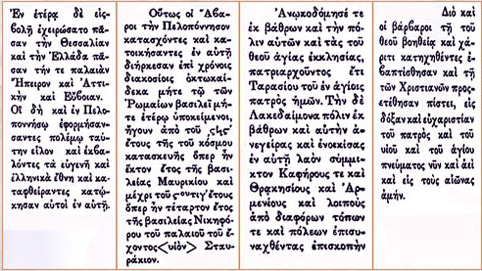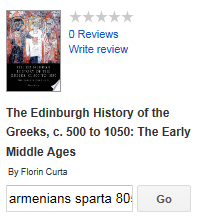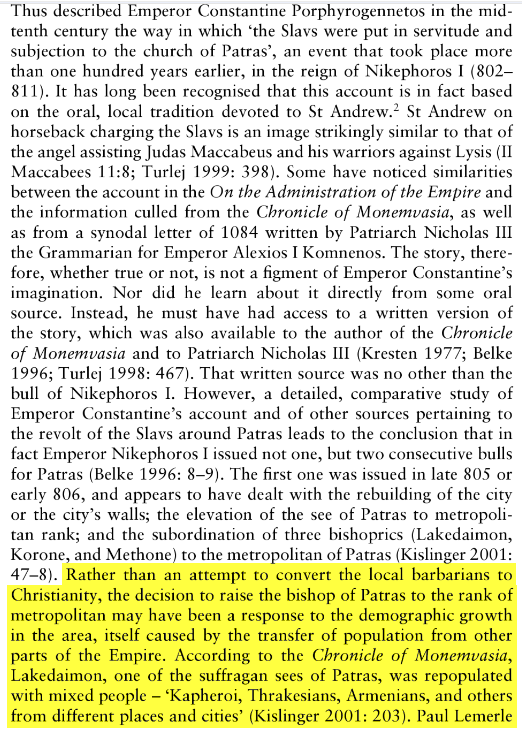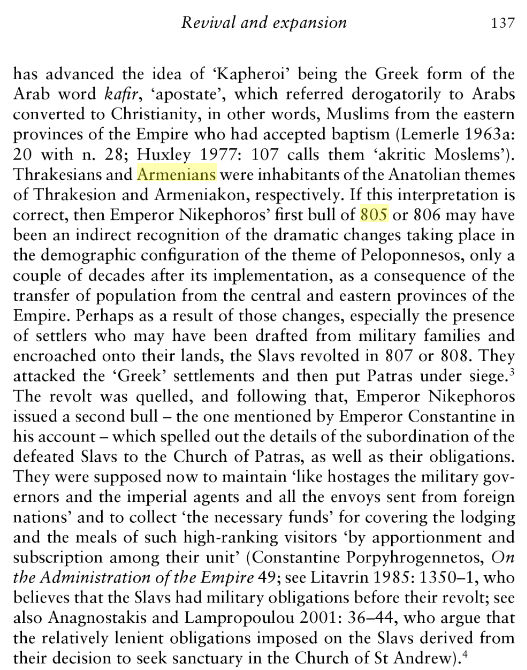I recently found an article by Romanian historian Florin Curta about the Avar reign in Greece, "Barbarians in Dark-Age Greece: Slavs or Avars?". Most of the text is based on the information in Chronicle of Monemvasia and some other sources which depicts the events in Avaric raids reaching as south as Crete island.
These sources was also the base of Fallmerayer`s claims of Turkic and/or the Slavic people under Avaric alliance totally devastated local residents of Greece because of more than 200 years of Avar rule between 6th and 9th century plus the outbreak of plague in Peloponnese in 8th century. In the end of the chronicle, it mentions about the restoration of eastern Roman rule in Peloponnese in 9th century and christianization of the so-called barbarian Avaric residents of Peloponnese.
The Chronicle of Monemvasia has been written in late 10th or early 11th century by an unknown eastern Roman author. One of the oldest copies has been preserved in a monastery in Mount Athos, Greece.
Here are some parts from the article;




These sources was also the base of Fallmerayer`s claims of Turkic and/or the Slavic people under Avaric alliance totally devastated local residents of Greece because of more than 200 years of Avar rule between 6th and 9th century plus the outbreak of plague in Peloponnese in 8th century. In the end of the chronicle, it mentions about the restoration of eastern Roman rule in Peloponnese in 9th century and christianization of the so-called barbarian Avaric residents of Peloponnese.
The Chronicle of Monemvasia has been written in late 10th or early 11th century by an unknown eastern Roman author. One of the oldest copies has been preserved in a monastery in Mount Athos, Greece.
Here are some parts from the article;









Comment